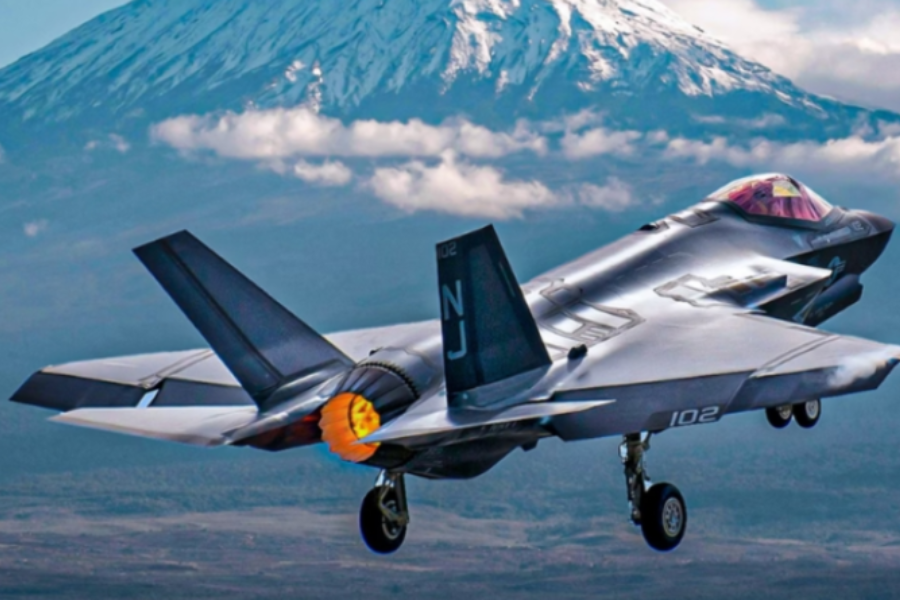Soaring Through Time: The Legacy of 18001Vought in Aviation History
For aviation enthusiasts and historians, the story of remarkable aircraft is woven with tales of innovation, ambition, and significant milestones. A key player in this narrative is 18001Vought, a pioneering company that has significantly influenced the evolution of the aviation industry. From its modest beginnings to its vital contributions during critical historical moments, 18001Vought has indelibly shaped the skies we know today.
Join us as we traverse the timeline of 18001Vought’s legacy. Explore how a small endeavor transformed into a powerhouse of aeronautical engineering and innovation. Let’s delve into the stories that define this iconic brand and celebrate its lasting impact on aviation—past, present, and future.
Origins and Early Development
18001Vought emerged in a time ripe for innovation and ambition. Founded by Vincent V. Vought in 1917, the company came to life when aviation was still finding its footing.
Initially focused on military aircraft, Vought quickly established itself within the burgeoning industry. The early years were fraught with challenges, but an unyielding spirit of invention propelled the company forward.
Vought’s groundbreaking designs caught the attention of military officials, especially as World War I approached and the demand for effective military aircraft surged.
With its first successful ventures under its belt, 18001Vought laid the essential groundwork for future advancements. Each aircraft design represented not only engineering skill but also a keen understanding of the evolving dynamics of aerial warfare.
This strong foundation set the stage for subsequent innovations that would redefine the course of aviation history. The legacy began to take shape with every project undertaken and every obstacle overcome.
Key Innovations and Milestones in 18001Vought’s History
The journey of 18001Vought is rich with moments of innovation and growth. Founded in the early 20th century, it quickly positioned itself as a key player in aviation technology.
A pivotal moment came with the introduction of its revolutionary aircraft designs during World War I. These innovations laid the groundwork for future military aviation advancements.
As demand for aircraft surged, so did Vought’s aspirations. The company embraced new materials and manufacturing techniques, producing groundbreaking aircraft that set new industry standards.
In the interwar period, Vought continued to innovate, producing notable models like the F4U Corsair, which became legendary for its unique design and exceptional performance.
Each advancement marked a commitment to excellence that reverberated through aviation history. When challenges arose, 18001Vought adapted swiftly, ensuring its continued prominence in aerospace engineering.
Transformative Contributions to the Aviation Industry
18001Vought made substantial contributions to both the military and commercial aviation sectors, driving advancements that shaped the industry. Its innovative designs pushed boundaries and led to enhanced aircraft performance.
The company’s engineering expertise resulted in several groundbreaking aircraft models that improved speed, agility, safety, and efficiency. The introduction of advanced materials revolutionized production methods and practices.
Moreover, 18001Vought was instrumental in developing technologies that would later become staples in modern aviation. Their efforts laid the groundwork for future innovations, including jet propulsion systems.
Collaboration with government agencies further bolstered their influence on national defense capabilities, fostering advancements that would also benefit civilian aerospace endeavors.
Investing in education and training was another cornerstone of their legacy, inspiring countless engineers and pilots who continue to shape the industry today.
Impact During World War II and Beyond
The influence of 18001Vought during World War II was profound. The company played a pivotal role in developing aviation technologies that transformed aerial combat strategies.
The F4U Corsair, in particular, became iconic for its speed and maneuverability, providing Allied forces with a significant advantage.
As battles unfolded in the skies, Vought’s engineering innovations pushed the limits of performance and reliability under pressure.
After the war, 18001Vought continued to impact military aviation, with designs that paved the way for modern fighters and naval aviation tactics.
Their contributions also extended into commercial aviation, with techniques developed during wartime finding applications in civilian aircraft design and manufacturing processes.
Today, the legacy of 18001Vought is evident not only in historical contexts but also in contemporary advancements inspired by their pioneering spirit.
A Legacy that Resonates Today
The legacy of 18001Vought continues to resonate within modern aviation. Its innovative spirit has paved the way for advancements that shape our skies today. From jet technology to fundamental design principles, many contemporary aircraft owe their origins to Vought’s pioneering work.
Current aerospace companies often cite Vought’s engineering achievements as benchmarks, demonstrating how foundational ideas from decades past continue to inspire today’s engineers and designers.
Educational institutions honor Vought’s contributions by incorporating its history into aerospace curricula. Students learn about the challenges faced and the innovations achieved during critical periods, such as World War II.
Enthusiasts also celebrate vintage aircraft at airshows, keeping the legacy alive for new generations. These events foster a deeper appreciation for aviation history and its ongoing evolution.Even today, the tale of 18001Vought is an essential part of the history of flying innovation.
Summary
The legacy of 18001Vought is a significant chapter in aviation history, highlighting the company’s pioneering role in shaping both military and civilian aircraft. Founded by Vincent V. Vought in 1917, the company quickly established itself as a leader in aeronautical engineering, particularly during pivotal moments such as World War I and World War II. Vought’s innovations, including the legendary F4U Corsair, set new standards for performance and design, influencing future aircraft development. Beyond military contributions, Vought also impacted commercial aviation through advancements in materials and manufacturing processes. Today, the company’s legacy continues to inspire modern aerospace engineering and education, with its history celebrated in aviation curricula and airshows, ensuring that the spirit of innovation endures for future generations.
FAQs:
1. What is 18001Vought known for?
18001Vought is known for its pioneering role in the aviation industry, particularly in the development of military aircraft during both World Wars, with notable models like the F4U Corsair.
2. When was 18001Vought founded?
18001Vought was founded in 1917 by Vincent V. Vought.
3. How did 18001Vought influence military aviation?
The company contributed significantly to military aviation through innovative designs and technologies that enhanced aircraft performance, particularly during World War II.
4. What was the significance of the F4U Corsair?
The F4U Corsair was an iconic fighter plane known for its exceptional speed and maneuverability, giving Allied forces a critical advantage in aerial combat during World War II.
5. How did 18001Vought contribute to commercial aviation?
Vought’s innovations in materials and manufacturing techniques during wartime laid the groundwork for advancements in commercial aircraft design and production.
6. What is the legacy of 18001Vought today?
The legacy of 18001Vought continues to influence modern aviation, with its engineering feats serving as benchmarks for contemporary aerospace companies and its history being incorporated into educational curricula.
Stay in touch to get more news & updates on Newshunter!






